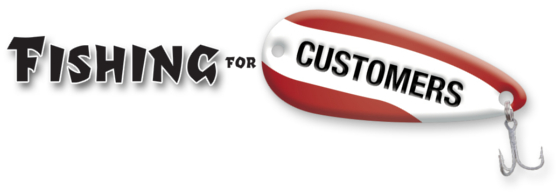My introduction to the business of advertising was through the characters in Bewitched.
Each week Samantha and Darren would have to come up with something highly creative to explain the presence of whichever historical figures were hanging around the Tate Agency.
 In Lover Come Back Rock Hudson and Doris Day were competing advertising executives landing the account with tricks, schmooze, and everthing but good advertising. And Good Neighbor Sam had Jack Lemmon focusing on keeping the client happy rather than on creating ads which boosted the sales curve.
In Lover Come Back Rock Hudson and Doris Day were competing advertising executives landing the account with tricks, schmooze, and everthing but good advertising. And Good Neighbor Sam had Jack Lemmon focusing on keeping the client happy rather than on creating ads which boosted the sales curve.
The more recent films, Richard E. Grant and Rachel Ward in How to Get Ahead in Advertising; Dudley Moore and Daryl Hannah in Crazy People; Tom Hanks and Jackie Gleason in Nothing in Common; Mel Gibson and Helen Hunt in What Women Want, all share a similarity in plotlines… cleverness and creativity will save the account (and the ad man’s job).
What’s the ROI?
So it shouldn’t surprise me that advertisers expect cleverness and even entertainment in their ads. We all grew up in the same culture, watching the same shows, reading the same books. It shouldn’t surprise me, but it still does. I’d have thought that return on investment was the standard by which we judged the ad.
After all, media reps all tell us that advertising is an investment. Shouldn’t we judge this investment by the same ROI as all of our other investments?
It’s not that a good ad can’t be entertaining, but rather when attention is drawn to the ad itself, it’s already failed. The instant your audience focuses on the delivery vehicle the message becomes irrelevant.
Years ago at a live community theater production an actress slipped and fell on stage. Up until that moment the whole audience had been pretending they were looking through an invisible wall, watching people reacting to each other and to the situation in which those people found themselves. But in a single brief moment the play was forgotten as the audience wanted to know “Was the actress hurt?”
The instant we focused on the delivery vehicle (actress on stage) the message (story line) became irrelevant. To this day, my strongest memory of that evening was watching the other cast members help the actress off stage.
A Good Ad…
A good ad doesn’t draw attention to itself, focuses the audience’s attention on the message, and produces a solid ROI.
By that definition, let’s look at a few good ads. I picked them at random. Here are their headlines:
Stop Snoring Tonight – Guaranteed!
Lose 20 Pounds in 9 Days.
Lower Your Mortgage. $200k Refinance for Only $583/Month.
Affordable Life Insurance. No Medical Exam. No Waiting Period.
Dull, aren’t they?
Agreed. These will never win an award.
But assume for a minute that you sleep with a snorer. What words would capture your attention better than “Stop Snoring Tonight – Guaranteed?”
If you’ve already tried willpower and treadmills, can you find an ad with higher salience than “Lose 20 Pounds in 9 Days?”
There is nothing clever or creative about these ads, but you know they work. You know it because they provide the information to solve their problem(s) to people who have a real need that information.
What’s your message? When you try to deliver that message to potential buyers, is your ad carrying the promise of a solution to a very real problem? Will it act as bait to draw them into your solution while you’re fishing for customers?
Your Guide,
Chuck McKay
 Your Fishing for Customers guide, Chuck McKay, gets people to buy more of what you sell.
Your Fishing for Customers guide, Chuck McKay, gets people to buy more of what you sell.
Got questions about headlines with big promise? Drop Chuck a note at ChuckMcKay@FishingforCustomers.com. Or call him at 760-813-5474.
